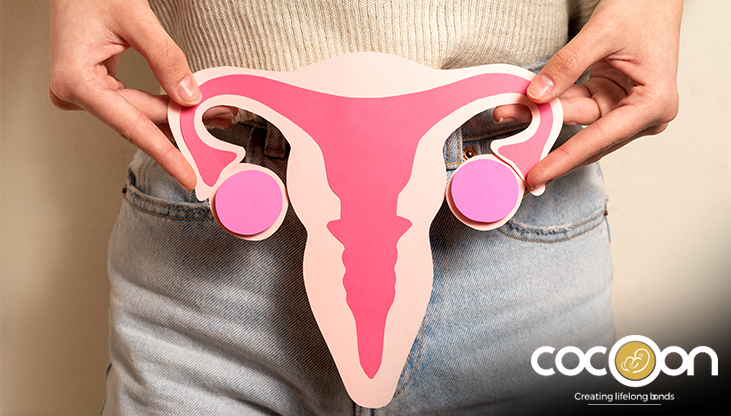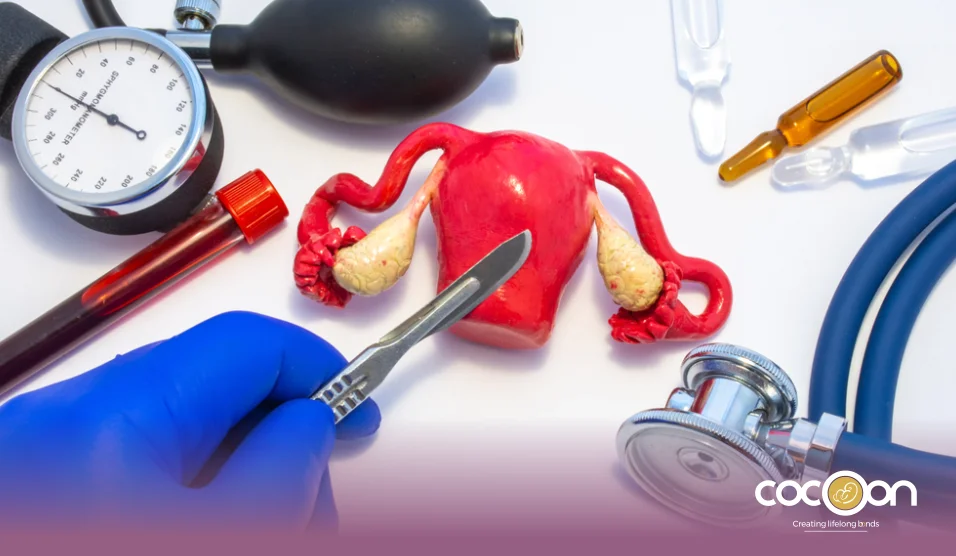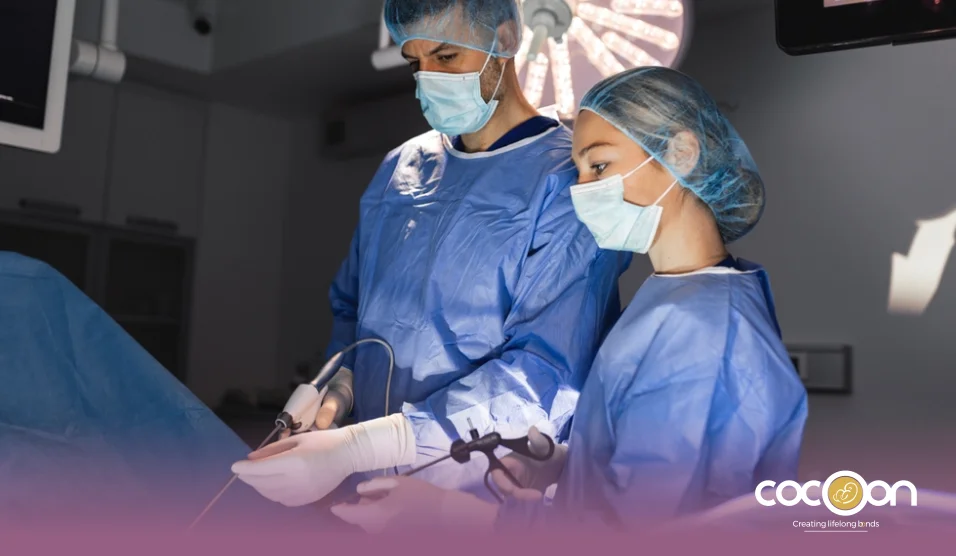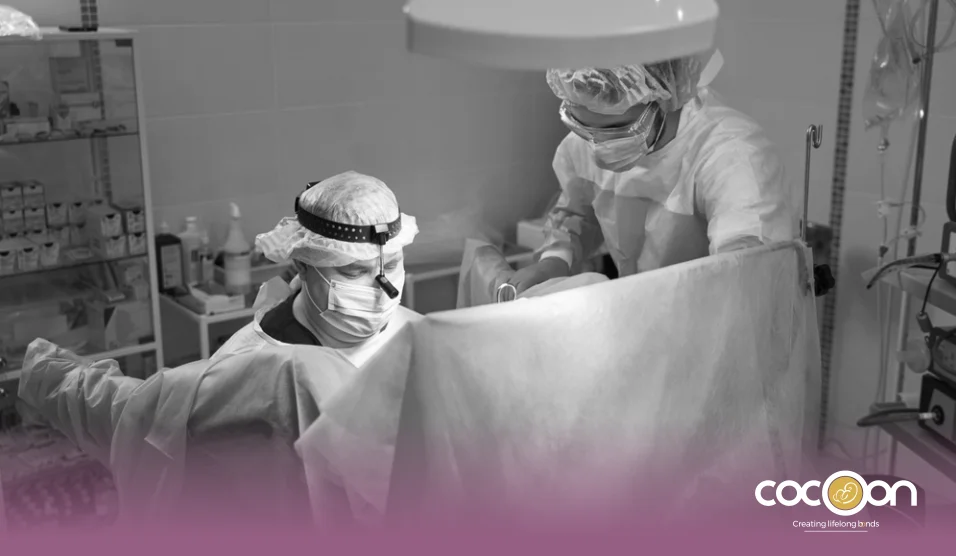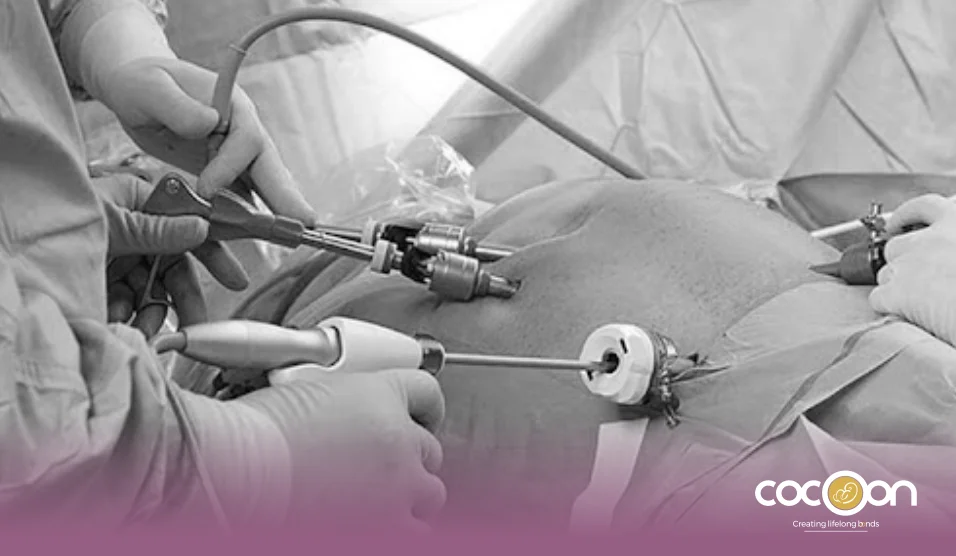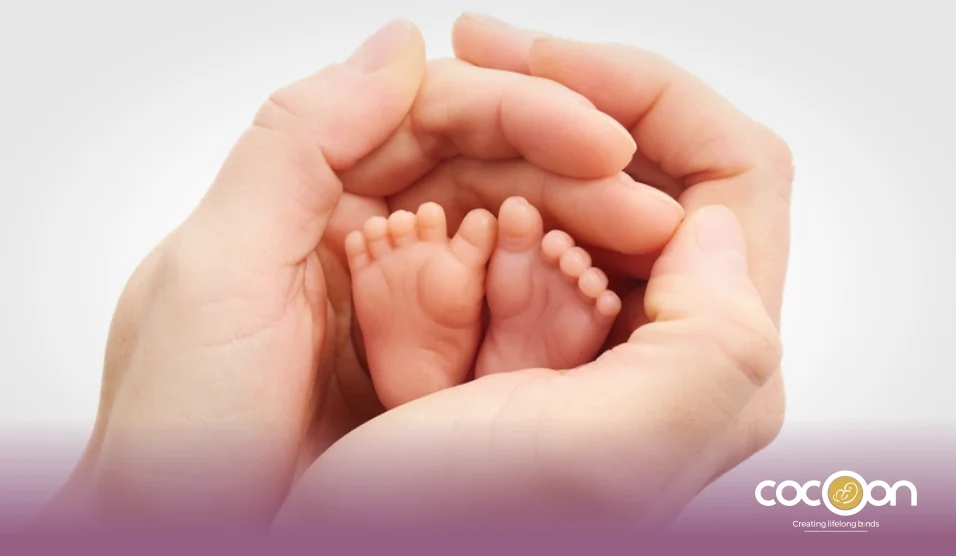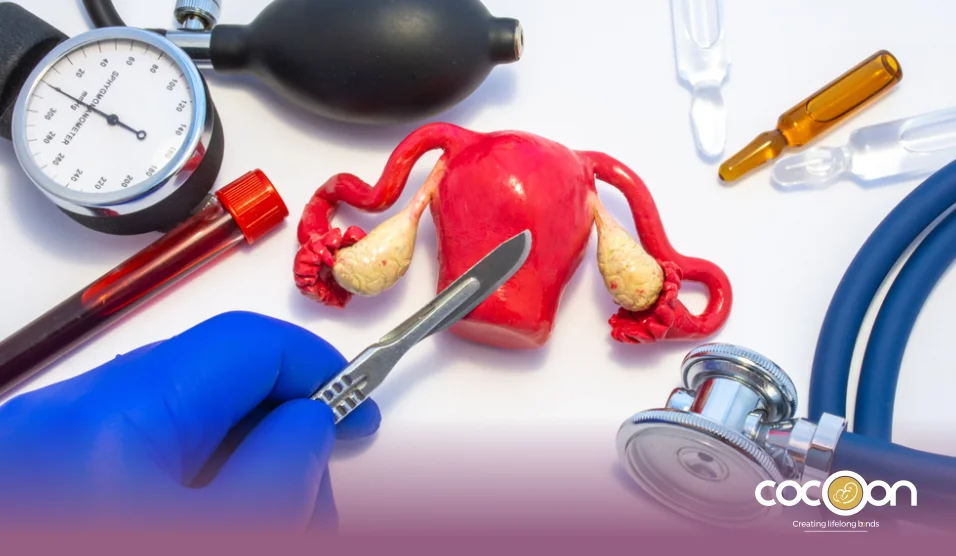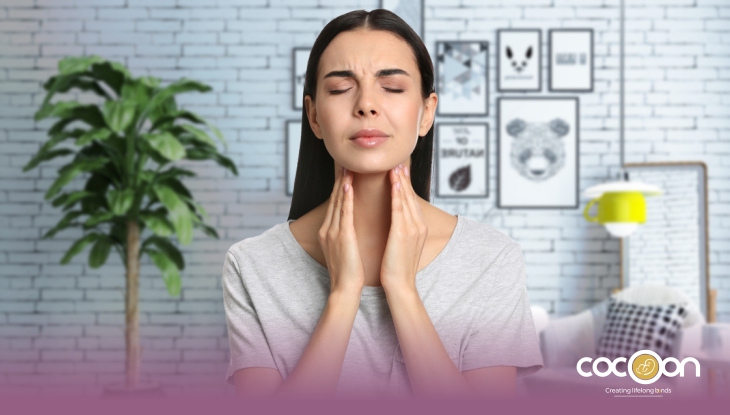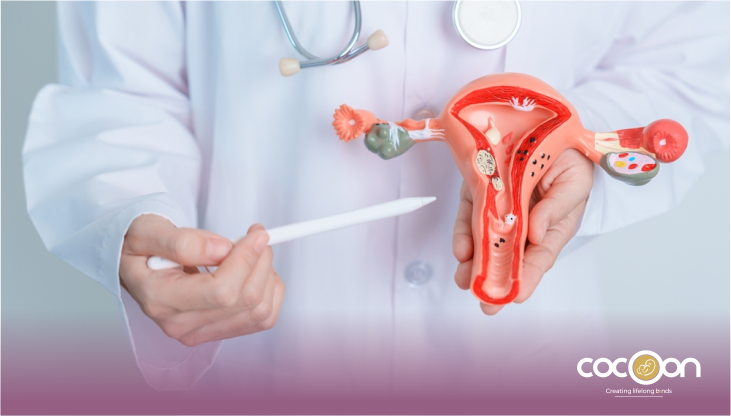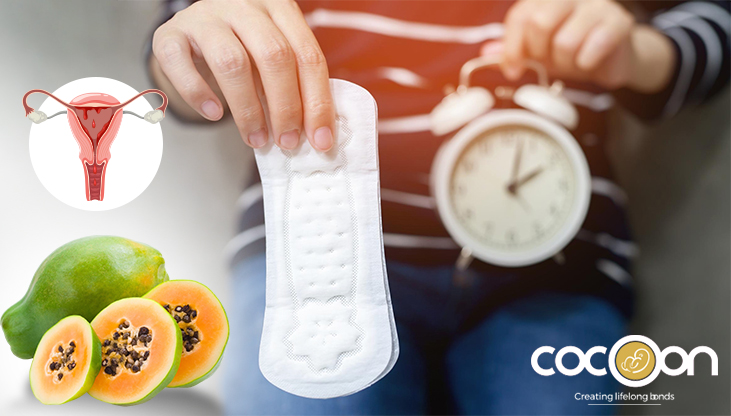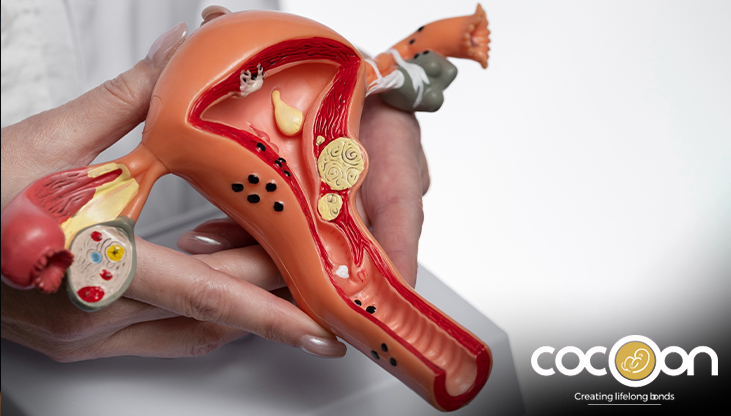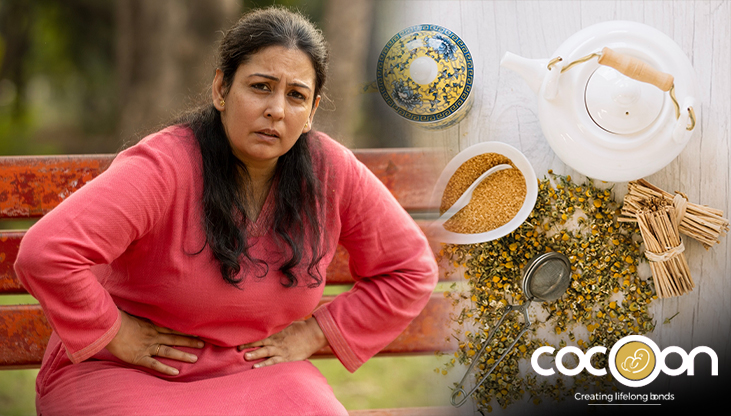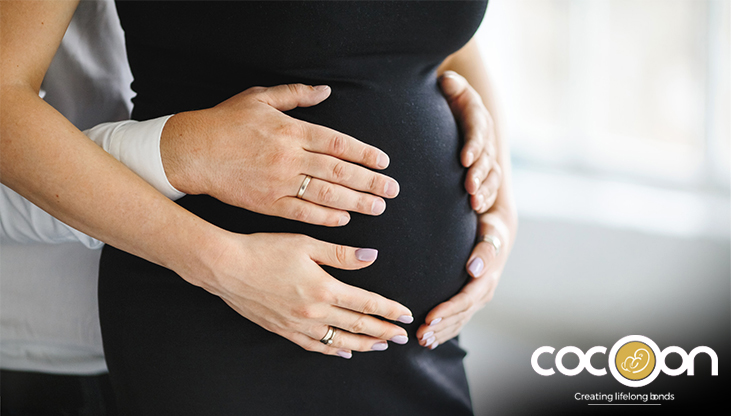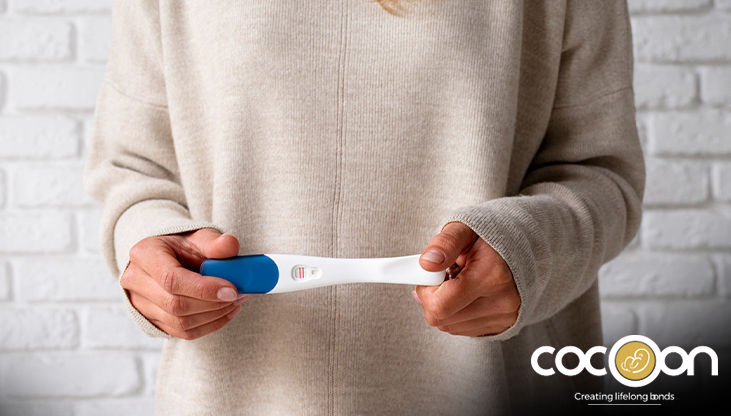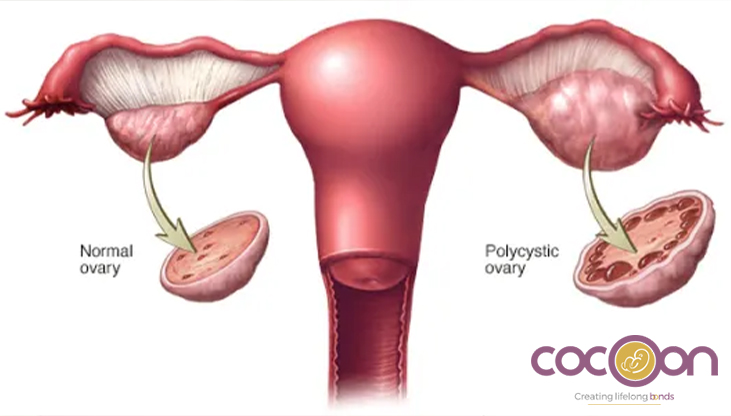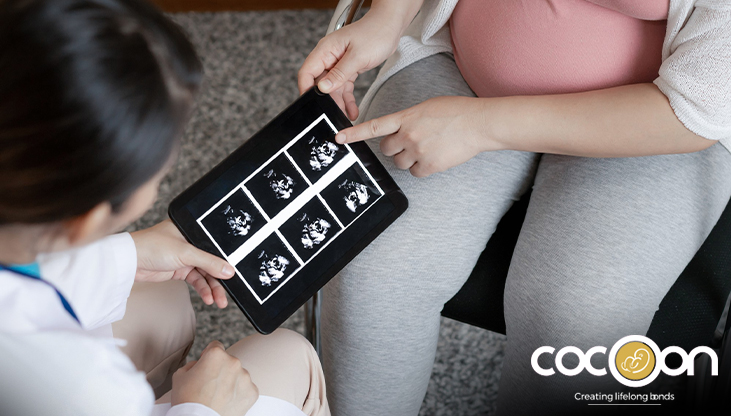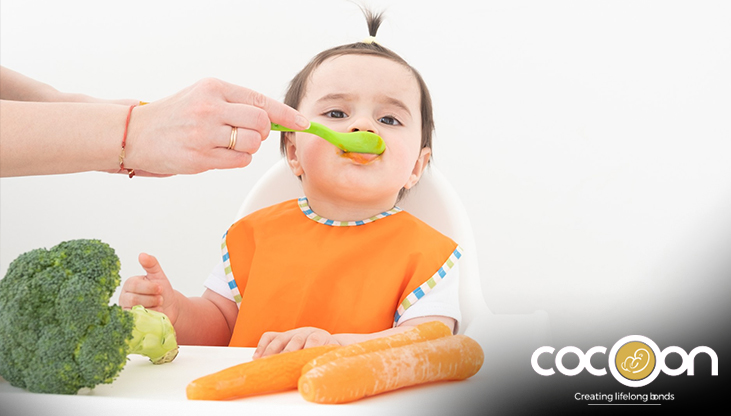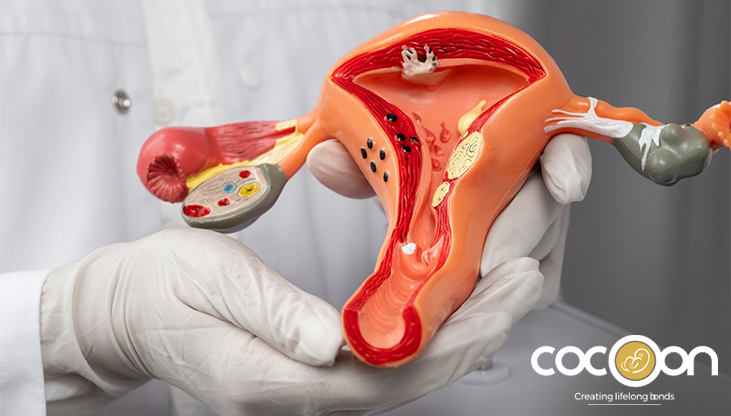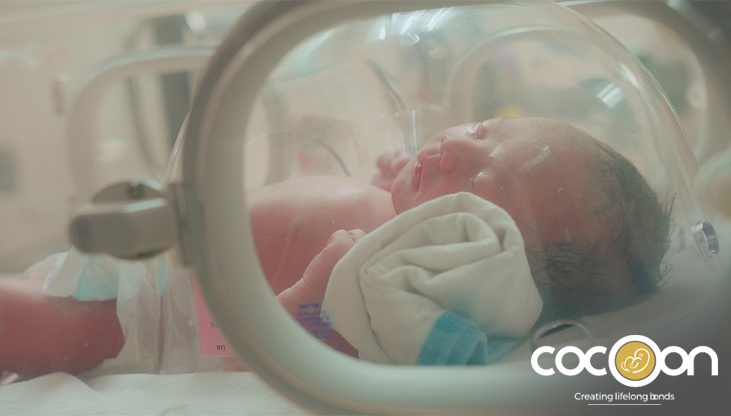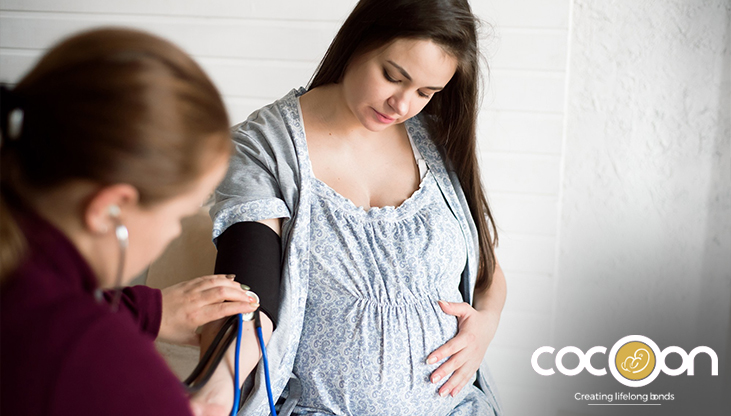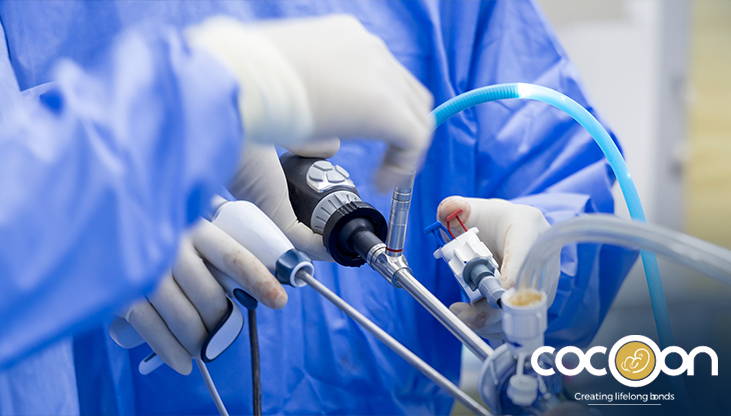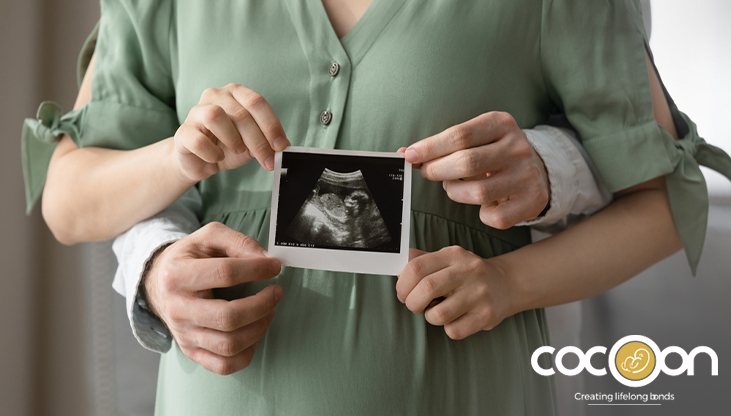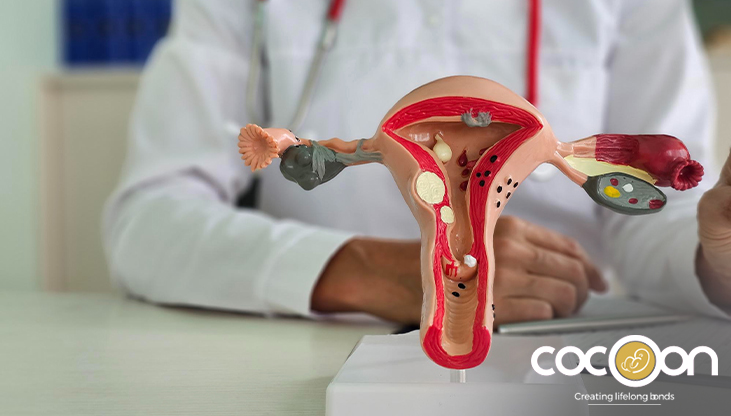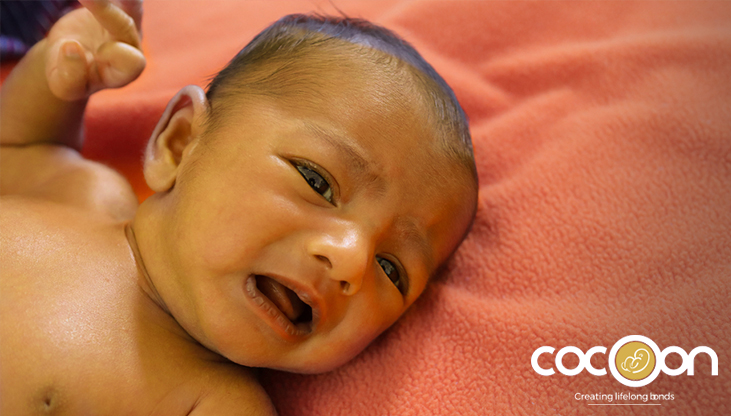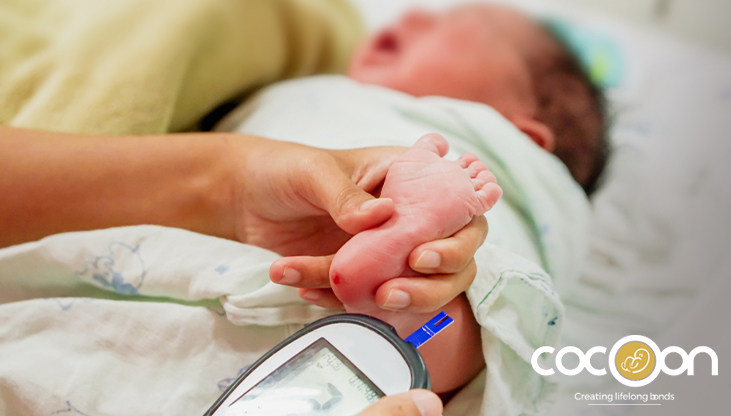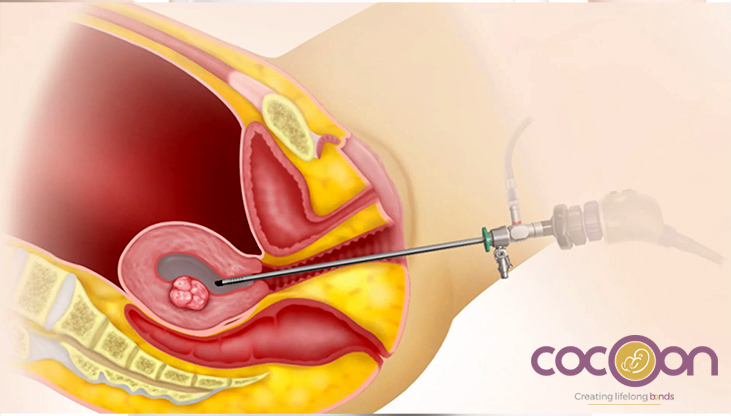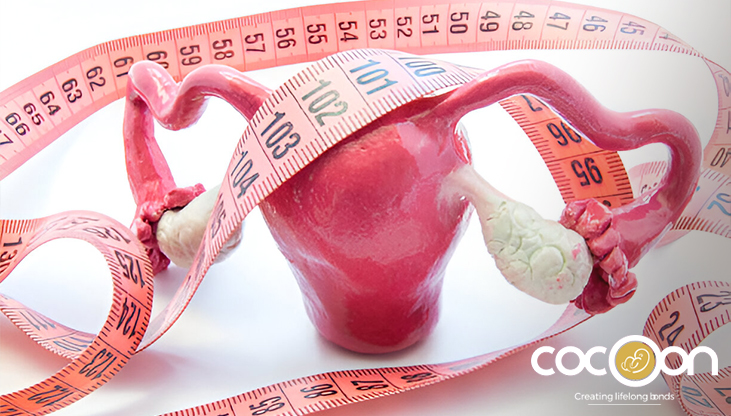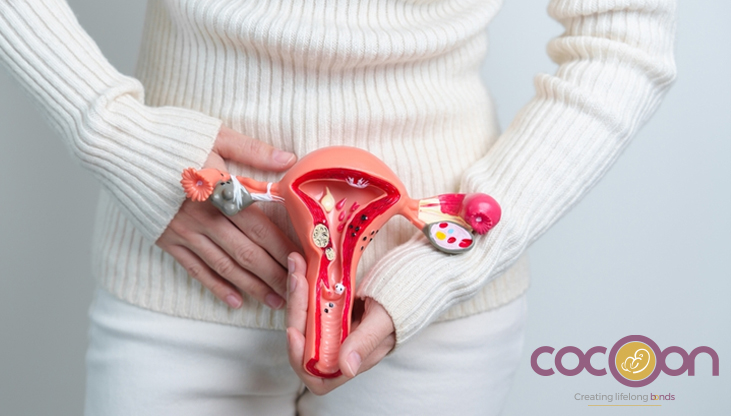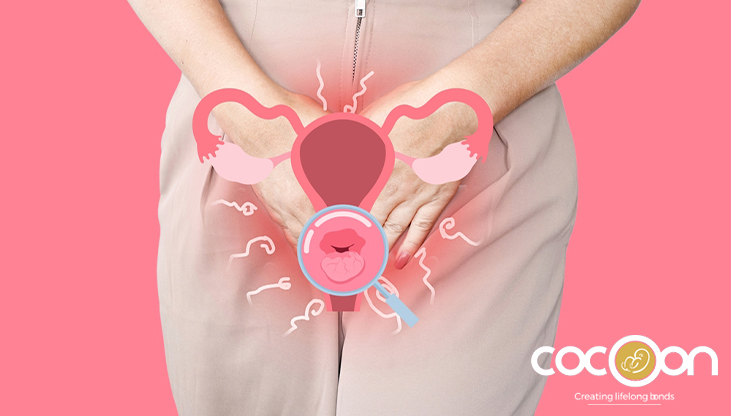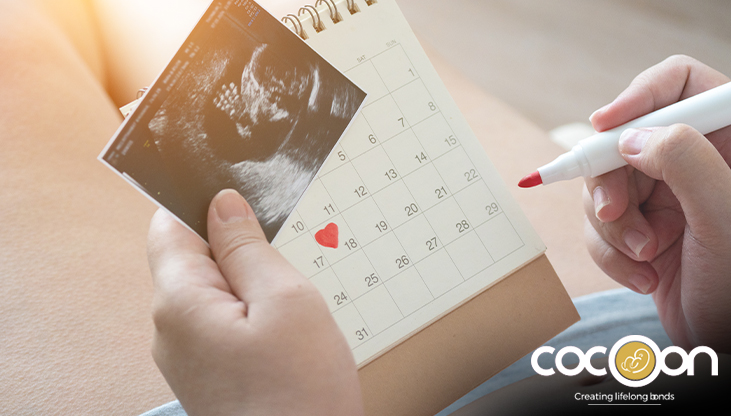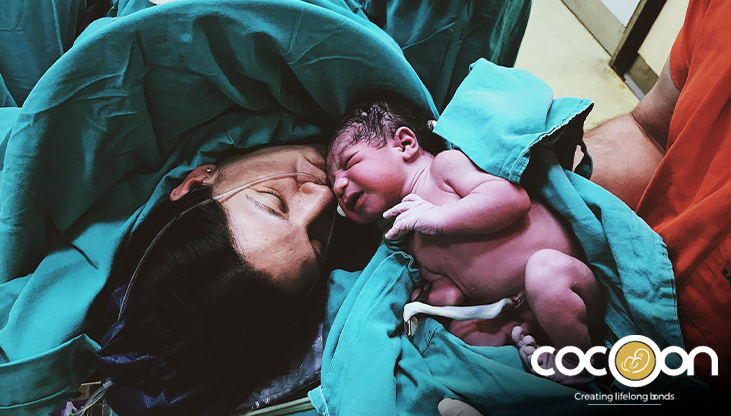Polycystic Ovarian Disease (PCOD) and Polycystic Ovarian Syndrome (PCOS) are common hormonal disorders that affect many women, especially during their reproductive years. While they are often used interchangeably, PCOD and PCOS have distinct differences. Both conditions affect the ovaries and can cause irregular periods, weight gain, acne, and fertility issues. However, PCOS is more severe and is linked to metabolic and hormonal imbalances.
What is PCOD?
PCOD (Polycystic Ovarian Disease) is a condition where the ovaries produce immature or partially developed eggs. These eggs turn into cysts over time, leading to enlarged ovaries and hormonal imbalances. PCOD is mainly caused by lifestyle factors such as poor diet, stress, and lack of exercise.
Women with PCOD may experience irregular periods, mild hormonal imbalance, and occasional fertility issues. However, PCOD is less severe than PCOS and can often be managed with lifestyle changes.
What is PCOS?
PCOS (Polycystic Ovarian Syndrome) is a more serious endocrine disorder that affects the entire body. It is caused by high levels of androgens (male hormones) and insulin resistance, which disrupt normal ovulation. This leads to multiple cysts in the ovaries, irregular periods, excessive hair growth (hirsutism), acne, and weight gain.
PCOS is a complex condition that can increase the risk of diabetes, heart disease, and infertility if left untreated. It requires medical intervention, including hormonal therapy, dietary modifications, and regular exercise.
PCOD vs. PCOS: Key Differences
| Feature | PCOD | PCOS |
| Nature | A disorder caused by immature egg development | A metabolic and hormonal disorder |
| Impact on Ovulation | Ovaries produce immature eggs but ovulation still occurs | Ovulation is often absent or irregular |
| Hormonal Imbalance | Mild | Severe, with high androgen levels |
| Symptoms | Irregular periods, mild weight gain, acne | Severe acne, excessive hair growth, insulin resistance, obesity |
| Fertility Issues | Can conceive with minor treatment | Higher risk of infertility |
| Long-Term Health Risks | Minimal risks | Increased risk of diabetes, heart disease, and infertility |
| Management | Lifestyle changes (diet & exercise) | Requires medical treatment and lifestyle modifications |
Common Symptoms of PCOD and PCOS
Both PCOD and PCOS share several symptoms due to hormonal imbalances, though their severity may vary.
- Irregular periods – Periods may be delayed, infrequent, or heavy.
- Weight gain – Unexplained weight gain, especially around the abdomen.
- Acne and oily skin – Due to excessive androgen production.
- Hair growth (Hirsutism) – Excessive hair on the face, chest, or back.
- Thinning hair (PCOS hair loss) – Hair loss or bald patches due to hormonal imbalance.
- Difficulty conceiving – Ovulation problems leading to infertility.
- Mood swings and fatigue – Emotional instability and low energy levels.
What Causes PCOD and PCOS?
The exact causes of PCOD and PCOS are not fully understood, but several factors contribute to their development.
Causes of PCOD
- Unhealthy diet (high sugar and processed foods).
- Sedentary lifestyle and lack of physical activity.
- Genetic predisposition.
- Stress and poor sleep habits.
Causes of PCOS
- Insulin resistance – High insulin levels trigger excess androgen production.
- Hormonal imbalance – High levels of androgens and luteinizing hormone (LH) disrupt ovulation.
- Genetics – Family history plays a role in developing PCOS.
- Inflammation – Chronic inflammation may contribute to hormonal imbalances.
PCOS and Insulin Resistance
One of the main factors in PCOS is insulin resistance, where the body does not use insulin effectively, leading to high blood sugar levels. This increases the risk of type 2 diabetes and weight gain. Managing insulin resistance through diet and exercise is essential for controlling PCOS symptoms.
How is PCOD/PCOS Diagnosed?
Doctors diagnose PCOD and PCOS based on:
- Medical history and symptoms – Irregular periods, weight gain, acne, and excessive hair growth.
- Ultrasound (PCOD diagnosis/PCOS diagnosis) – To check for cysts in the ovaries.
- Blood tests – To measure hormone levels, blood sugar, and cholesterol.
PCOD & PCOS Treatment Options
Managing PCOD and PCOS requires a combination of lifestyle changes, medical treatments, and natural remedies.
Lifestyle Modifications (First-Line Treatment for PCOD & PCOS)
Making lifestyle changes is the most effective way to manage PCOD and PCOS. A balanced diet, regular exercise, and stress management can help regulate hormones and improve symptoms.
-
Healthy Diet (PCOD Diet & PCOS Diet)
- Include high-fiber foods (vegetables, fruits, whole grains).
- Eat lean proteins like fish, eggs, and legumes.
- Avoid processed foods, sugary drinks, and refined carbohydrates.
- Reduce dairy and soy intake (may affect hormone balance).
-
Regular Exercise (PCOS Exercise)
- Engage in moderate workouts like brisk walking, yoga, and strength training.
- Exercise helps regulate insulin levels and manage weight.
-
Weight Management
- Losing 5-10% of body weight can improve symptoms significantly.
- Focus on sustainable lifestyle changes rather than crash diets.
-
Stress Management
- Practice meditation, deep breathing, and mindfulness.
- Get adequate sleep and maintain a regular sleep schedule.
Medical Treatment for PCOS
When lifestyle changes alone are not enough, medical treatment can help manage PCOS symptoms and improve overall health. Depending on the severity of symptoms and individual health goals, doctors may recommend medications to regulate hormones, control insulin levels, or support fertility.
Natural Remedies & Supplements for PCOS Management
Natural remedies and supplements can help manage PCOS symptoms alongside medical treatments and lifestyle changes. While they are not a cure, they can support hormone balance, improve insulin sensitivity, and reduce inflammation.
-
PCOS Natural Remedies
- Spearmint tea – Helps reduce excessive hair growth.
- Cinnamon – Improves insulin sensitivity.
- Apple cider vinegar – Helps regulate blood sugar levels.
-
PCOS Supplements
- Inositol – Helps with insulin resistance and ovulation.
- Omega-3 Fatty Acids – Reduce inflammation and balance hormones.
- Vitamin D & Magnesium – Support metabolic health and hormone regulation.
PCOS and Pregnancy: Can Women with PCOS Conceive?
PCOS is one of the leading causes of infertility, but it does not mean you cannot get pregnant. Many women with PCOS conceive naturally or with fertility treatments. Treatments like ovulation-stimulating medications, lifestyle changes, and assisted reproductive techniques like IVF can help. Early diagnosis and treatment improve the chances of a successful pregnancy.
PCOS and Thyroid: The Connection
Many women with PCOS also have thyroid disorders, especially hypothyroidism. Since both conditions affect metabolism and hormones, proper thyroid function tests should be done if PCOS symptoms persist despite treatment.
Conclusion
PCOD and PCOS are common hormonal disorders that can impact a woman’s health and fertility. While PCOD is a milder condition that can be managed with lifestyle changes, PCOS requires medical intervention due to its long-term health risks.
The key to managing PCOS and PCOD is early diagnosis, proper diet, regular exercise, and medical guidance. If you experience symptoms like irregular periods, weight gain, acne, or infertility, consult a doctor for a proper evaluation and treatment plan.
By making healthy lifestyle changes and seeking medical support when needed, women with PCOS and PCOD can lead a balanced and healthy life.

